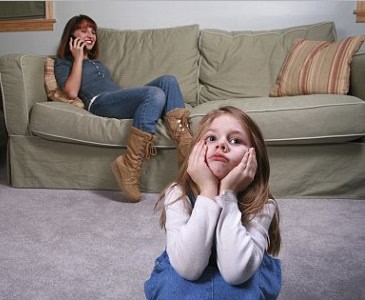17 Tips for Parents & Teachers to Stop Bullying

|
Getting your Trinity Audio player ready...
|
Why am I offering tips to stop bullying?
I was the victim of severe bullying from 5th to 9th grade, making this topic a personal issue for me.
As a school psychologist and behavior specialist, I have also worked with students who were bullied and students who bullied others.
Additionally, I have worked in schools where I felt the bullying policy was not very solid. ‘
Where do my 17 tips to stop bullying come from?
The tips in this article are a combination of the following:
- what makes sense as being helpful for all based on my research and experiences in the education field
- what the anti-bullying experts recommend based on their experience and research
- what I believe would have helped me as a child and former victim of bullying
You may not agree with all the suggestions in this article and there are other avenues we can take to attempt to end this very unfortunate part of life for so many kids.
I also realize that this is a very sensitive issue for many, and I don’t have all the answers. Feel free to reach out to me with any tips to help with the bullying epidemic.
This is Part 1 of a series. Part 2: 15 Tips to Help Kids with Bullying gives several strategies children can use to handle bullying in their school, communities, etc.
What is Bullying?
Bullying is aggressive behavior by a person or group of people, that is unwanted by the victim(s). To be considered bullying, the behavior has to be repeated, or have the potential to be repeated, over time.
Actions such as spreading rumors, making threats, intentionally trying to scare someone, physically or verbally attacking someone, and purposely excluding someone from a group, are all forms of bullying.

Bullying can occur face to face, behind someone’s back, or on the internet. Many parents and educators ask the questions, “How do we keep our kids from being bullied, and how do we talk to kids about bullying?”
How Does Bullying Feel?
When a child gets bullied, it takes a huge toll on their self-esteem, particularly if that self-esteem is already low.
Here are some common thoughts of a child who is getting bullied:
- What is wrong with me?
- Is this ever going to stop?
- I am too embarrassed to tell anyone about this
- I don’t want to go to school tomorrow (or ever again)
- I can’t have one day in school that I enjoy
- Am I going to get seriously injured?
- I wish I was never born
- What is the point of even living if I have to go through this every day?
- I feel so alone
- Why do I live in such a cruel world?
- No one can help me

Victims of bullying have felt so hurt that they have committed suicide. This is one reason why it is so imperative that we take steps to decrease bullying behavior in our schools, communities, and online.
You may also like: Tips to End Cyberbullying
17 Tips for Parents & Teachers to Stop Bullying
1. Help your children/students understand what bullying is, what it does to others, and why it is not acceptable.
Parents can talk to their children about bullying before they even enter school and teachers can talk to students about it when school starts.
Children need to know that bullying is a common thing that happens to many children (so if it happens to them, they are not alone), and that adults like you are working hard to address it.
2. Let your children know that they can always talk to you if they get bullied.
Make sure they know that you will never judge them for getting bullied, and you will try to help them make the bullying stop.
Remind them that if they tell a trusted adult about a bullying problem, the bully does not need to know they told. We can address a bullying situation without indicating the person who reported it.
3. Check in with your children to see how things are going with peers at school.
Check if there are any situations involving teasing or bullying. Ask about their friends. Ask if anyone has done anything they were not comfortable with, or if anyone has hurt their feelings. Talk about ways to deal with these challenges.
4. Notice signs that may indicate your child is being bullied.
Signs may include:
- a drop in grades
- not wanting to go to school
- feeling sick more than usual
- seeming unusually sad or depressed
- loss of appetite
- not wanting to hang out with friends anymore
- loss of interest in things they once enjoyed
If you notice these signs talk to your child to see how you can help. If nothing changes, or if you are still concerned, talk to your child’s school and their doctor to see how they can help.
5. Let your children/students know that kids who bully need to work on themselves.
Bullies often feel joy from hurting others or lack the empathy to care how they make others feel.
Research Says We Can Help Kids of All Ages Develop Empathy: Find Out How
Those who bully also may be hurting in their own life, and they take it out on innocent victims because they need somewhere to exert control and release anger. It is wrong, and it is not your child’s fault. Your child needs to know this.
The bully is the one who needs to do something differently.
6. Let children know that those who bully want to see their targets get upset.
If a bully gets a child upset, they often continue bullying, because they got what they wanted.
Tell your child that those who bully like to control others’ emotions and actions by scaring them or making them feel bad about themselves
Talk to your child about the benefits of learning to regulate their emotions and actions. It is important that the bully sees they have no ability to control their intended victim. With no control, they are likely to move away from a student they initially target.

7. Work with your child to build their confidence.
Focus on your child’s/student’s strengths, believe in your child, and help them learn how to love and be proud of themselves.
Allow them to explore their interests, feel productive, and feel like they have a purpose. Listen to them without judgment. Children who believe in their value, are less likely to be affected by bullies.
8. Let your child know that they are not alone because you are always there for them.
Children are more likely to bounce back from challenging situations and believe in themselves when they know there is someone who loves, cares, and supports them.

9. Teach and show your children and students how to be kind, help others, and treat others with respect.

10. Notice and praise children who are kind and helpful to others.
Be specific. Examples may include: “that was so nice of you to share your toy with your brother” or “I noticed you helped your teacher when she dropped her papers on the floor. That was so kind of you.”
How can you notice a child’s positive behavior today?
11. Make it clear in your home and school that bullying and being mean to others are not acceptable or allowed.
Students who continuously bully others may need to receive their education in an alternative environment if the behavior cannot be stopped.
12. Let your children and students know that they have certain expectations they must follow in order to earn certain desired privileges.
Being kind to others should be a daily expectation for all children. If your child wants to do the things they enjoy, then they need to follow certain rules such as:
- cleaning up after themselves
- treating others with respect
- brushing their teeth
13. Teach about tolerance & accepting differences.
Share stories about unique people. Talk about how their differences make them special in a positive way.

Have your child/students think of someone they know who is different or unique and say good things about that person.
14. If you are an educator, find out your school’s bullying policy.
Learn what you are supposed to do if you see or find out about bullying. Make sure you follow the protocol. You may also like 3 Research-Based Interventions to Prevent Bullying for more tips to develop a school policy.
15. If you are a parent, find out exactly how your child’s school handles bullying.
Make sure you are comfortable with the policy and that you understand it. Check that the policy is followed if your child gets bullied. You may also like Should Parents Call a Lawyer for Bullying?
16. If your child/student is bullying others, let them know it is not acceptable.
Tell the child exactly what changes you expect to see. Ask them if anything is bothering them and ask how you can help.
For parents, keep in contact with your child’s school for updates on their behavior. Get counseling for your child if they continue to bully or if you have concerns about your child that you feel you can’t handle on your own.
Teachers should let the school counselor and administrator know if a student is bullying others.
Administrators, parents, and counselors should encourage children who bully to talk about their own life and situation to help them get to the bottom of anything that may be upsetting them.

However, children also need to know that, just like in the adult world, bullying will not be tolerated.
17. Role-play scenarios with your children/students, so they are familiar with what to do if/when faced with a bully.
Take turns being the bully and the victim to practice what to do if a challenge arises. Scenarios to practice may include:
- someone calling you names
- someone making fun of you or insulting you
- someone saying they heard a rumor about you
- someone making a threat to hurt or fight you
- someone throwing things at you
- someone trying to scare you
- someone tripping you
- someone hitting you
Refer to the video above in tip #3 for sample ideas for ways to respond to a bully. Here is another informational video on responding to bullies.
See a video presentation of this article below, which was created before the 10/23/22 article update.
Bullying Resources
Thank you for visiting educationandbehavior.com. We are a free resource for parents, caregivers, educators, and counselors.
If you found this article helpful, please share it!
Recommended Articles
- I Wish I was There to Protect You: A Powerful Poem to Help the Victims of Bullying
- Find Out How One Teacher Stopped Bullying in Her Classroom









